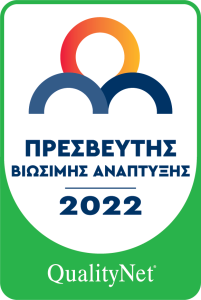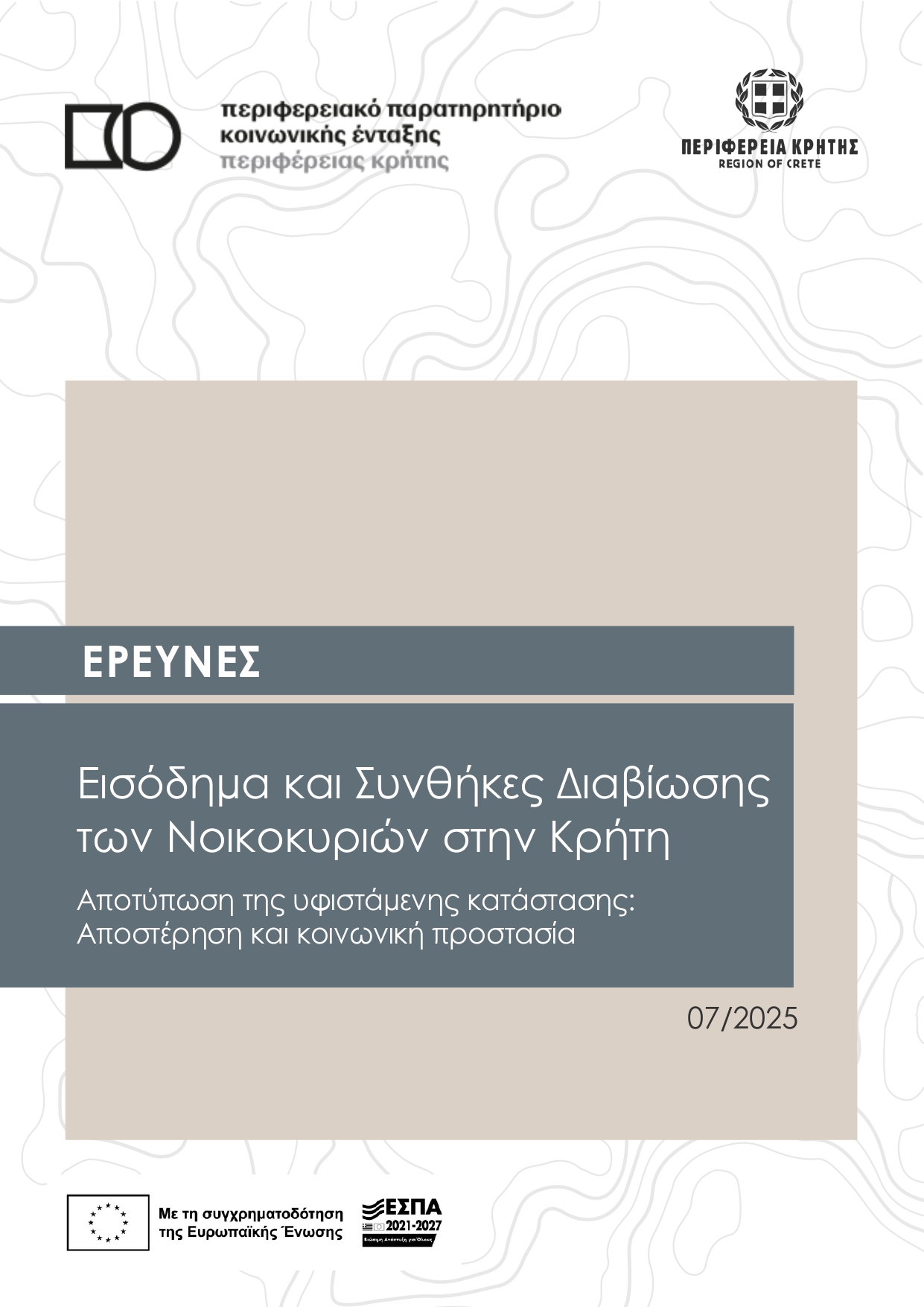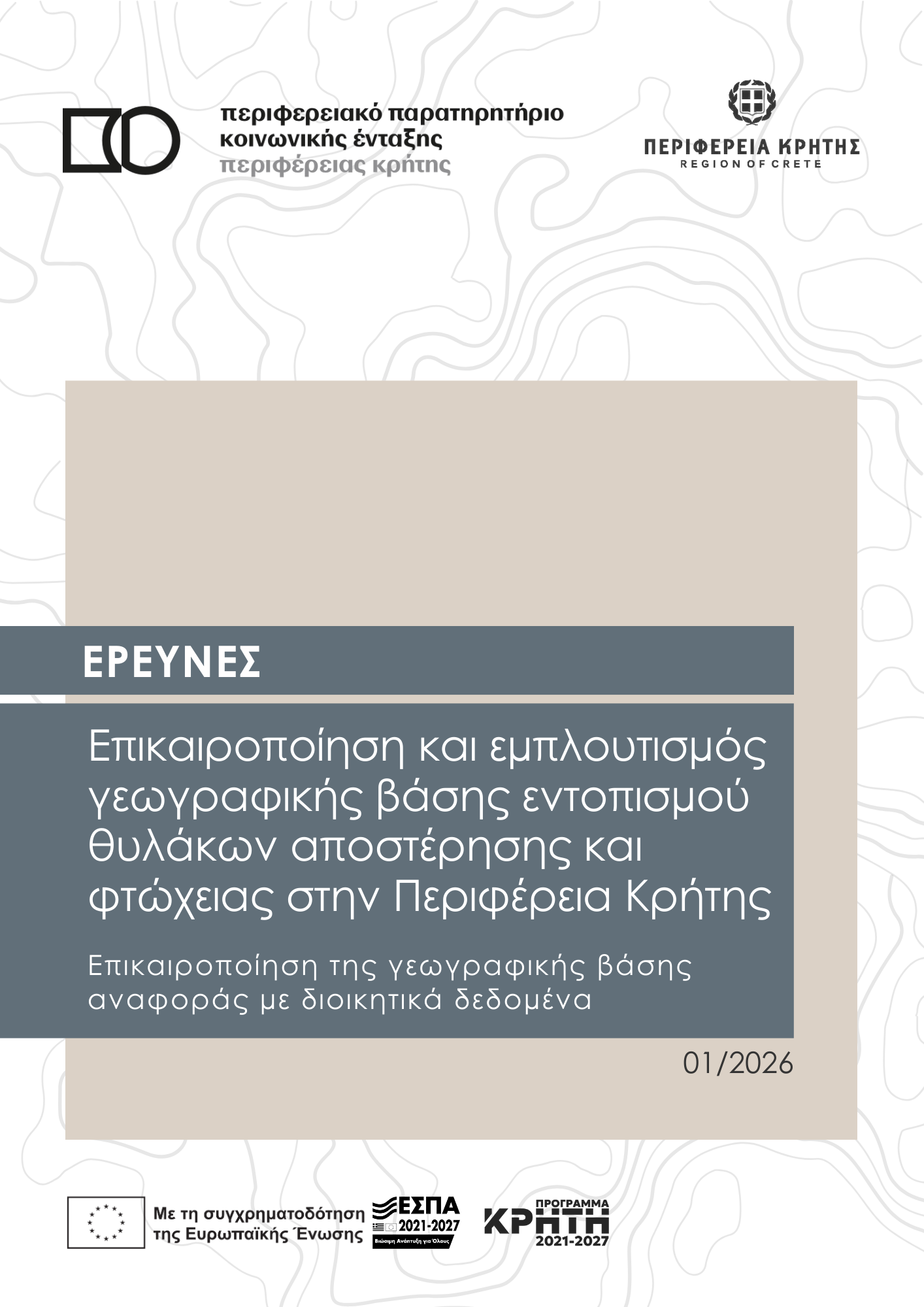This section refers to surveys conducted in the framework of the Regional Observatory for Social Inclusion of the Region of Crete.
In particular, it includes the description and the texts of the research work undertaken by the University of Crete team, namely the Laboratory of Social Analysis and Applied Social Research (EKAEKE) of the Department of Sociology.
The work of the Research Group is organized in 3 main research axes which are developed over a three-year period (2025-2028). The research axes are:
1st Research Axis : “Income & Living Conditions of Households in Crete”
In the 1st research axis, the systematic monitoring and analysis of the living conditions of the population of Crete, both in the region as a whole and in individual regional units, is continued and enriched. The impact of social protection in mitigating inequalities and addressing social risks such as poverty and deprivation is also being investigated. The aim is to produce appropriate and reliable data for the formulation and evaluation of policies and interventions to address social problems and promote the well-being of citizens at regional and local level. In addition, emphasis is placed on the exploration and analysis of new issues of importance for social development and cohesion, such as the contribution of social transfers to local development, the interaction of macroeconomic variables with inequality and poverty, health and health care issues and their relation to specific social, demographic and economic indicators, the reproduction of poverty and intergenerational mobility. For the purpose of the research, the main indicators and micro-data used are those from Eurostat and ELSTAT surveys. In addition, additional microdata provided by ELSTAT on behalf of the Region of Crete are also used, which will allow for the first time the investigation of living conditions in individual spatial units and population groups in Crete.
Scientific Manager of the 1st Research Axis: Christos Papatheodorou, Professor of Social Policy at the Department of Social Policy and member of the Board of Directors of Panteion University of Social and Political Sciences
2nd Research Axis: “Updating and enriching the geographical base for the identification of pockets of deprivation and poverty in the Region of Crete”
The 2nd axis updates, broadens and deepens the research on the identification of pockets of local deprivation and poverty in Crete, which was designed and implemented during the previous period of support for the operation of the Regional Observatory for Social Inclusion (2020-2023). On the basis of this research, the Observatory acquired tools to identify and prioritize the degree of deprivation in Crete, both overall (Index of Total Multiple Deprivation – MDRI) and in terms of individual dimensions of deprivation (Income, Employment, Education, Housing, Accessibility of Care). These tools are being updated and enriched with new data, enabling greater spatial focus, comparison between regions and at the same time greater analysis of the degree of responsiveness of policies to the needs of individual groups and regions, and the formulation of spatially focused social and development policies, combined with policies with direct and horizontal social targeting.
Researcher in charge of the 2nd Research Axis: Vassilis Arapoglou, Professor at the Department of Social Policy, Panteion University, with the subject “Comparative Social Policy and Social Inequalities”
3rd Research Axis: “Deprivation Guardians, Social Protection and Social Inclusion Networks”
The 3rd axis includes field research using participatory mixed methods that combine quantitative and qualitative data, focusing on the role and dynamics of the social and solidarity economy and informal solidarity networks in the Region of Crete. The research attempts to link issues of social inclusion with the prospects of sustainable development, focusing on local pockets of social deprivation in Crete. The research draws on international experience of Participatory Poverty Assessment methods, focusing on the needs assessment and the importance attached to individual dimensions of deprivation by members of local communities as well as on the potential for economic development through alternative forms of economic and social activity (social economy, social agriculture, cooperative organisations, energy communities, etc.). The results will be used to enrich the quantitative map of deprivation in the region.
The scientific manager of the 3rd Research Axis and of the whole project on the part of the University of Crete: Yannis Zaimakis, Professor at the Department of Sociology of the University of Crete, specializing in the Sociology of Local Societies and Culture. Director of the Laboratory of Social Analysis and Applied Social Research, University of Crete.


